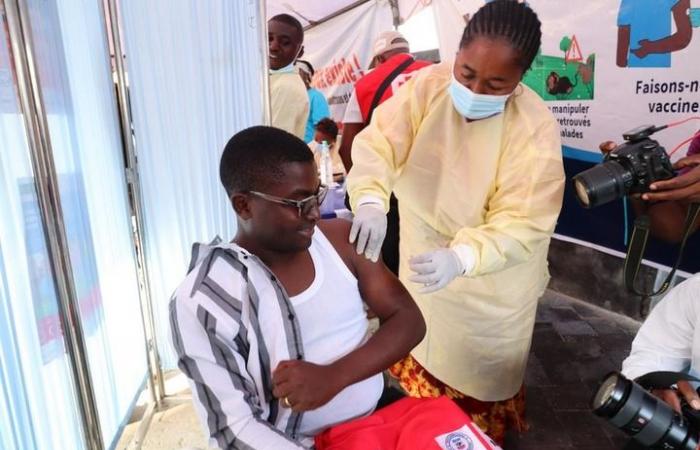
Confirmed cases of Mpox in Africa have increased by more than 500% this year compared to last year’s total, with the number of affected countries rising to 19, according to the Africa Centers for Disease Control and Prevention (CDC). Africa).
ADDIS ABABA, Nov. 1 (Xinhua) — Confirmed cases of Mpox in Africa increased by more than 500 percent this year compared to last year’s total, with the number of affected countries rising to 19, according to the African Center for Disease Control and Prevention (Africa CDC).
During an online press conference on Thursday evening, Ngashi Ngongo, head of the executive office of the African Union health agency, said that since the start of the year, Africa had reported 48,093 cases of the disease. the former monkeypox, including 10,372 confirmed and more than 1,048 deaths.
“If we compare (the confirmed cases reported this year) to the whole of 2023, this represents an increase of more than 500%,” he said, adding that “the situation is not not yet under control. The general trend is still upwards.
Mauritius is the latest African country to report cases of Mpox, bringing the total number of affected countries to 19. Africa CDC data also shows that the Central Africa region is worst affected by the outbreak, accounting for 85.7% of all reported cases and 99.5% of deaths.
Over the past week, the African continent reported 2,766 new cases, including 1,254 confirmed, as well as 34 new deaths. Mr Ngongo said the Democratic Republic of Congo and Burundi accounted for 94% of all new confirmed cases.
The Africa CDC also expressed concern over the recent increase in cases of monkeypox in Liberia and Uganda. According to Mr Ngongo, some of the risk factors contributing to the rapid spread of Mpox in Uganda are linked to cross-border and sexual transmissions of the virus.
Mpox was first detected in laboratory monkeys in 1958. It is a rare viral disease that is usually transmitted through bodily fluids, spit, and other contaminated materials. The infection usually causes fever, rash, and swollen lymph nodes.
In mid-August, the Africa CDC declared the ongoing Mpox outbreak in Africa a public health emergency of continental security concern. Shortly after, the World Health Organization also declared Mpox a public health emergency of international concern, activating its highest global alert level for the disease for the second time in two years.





